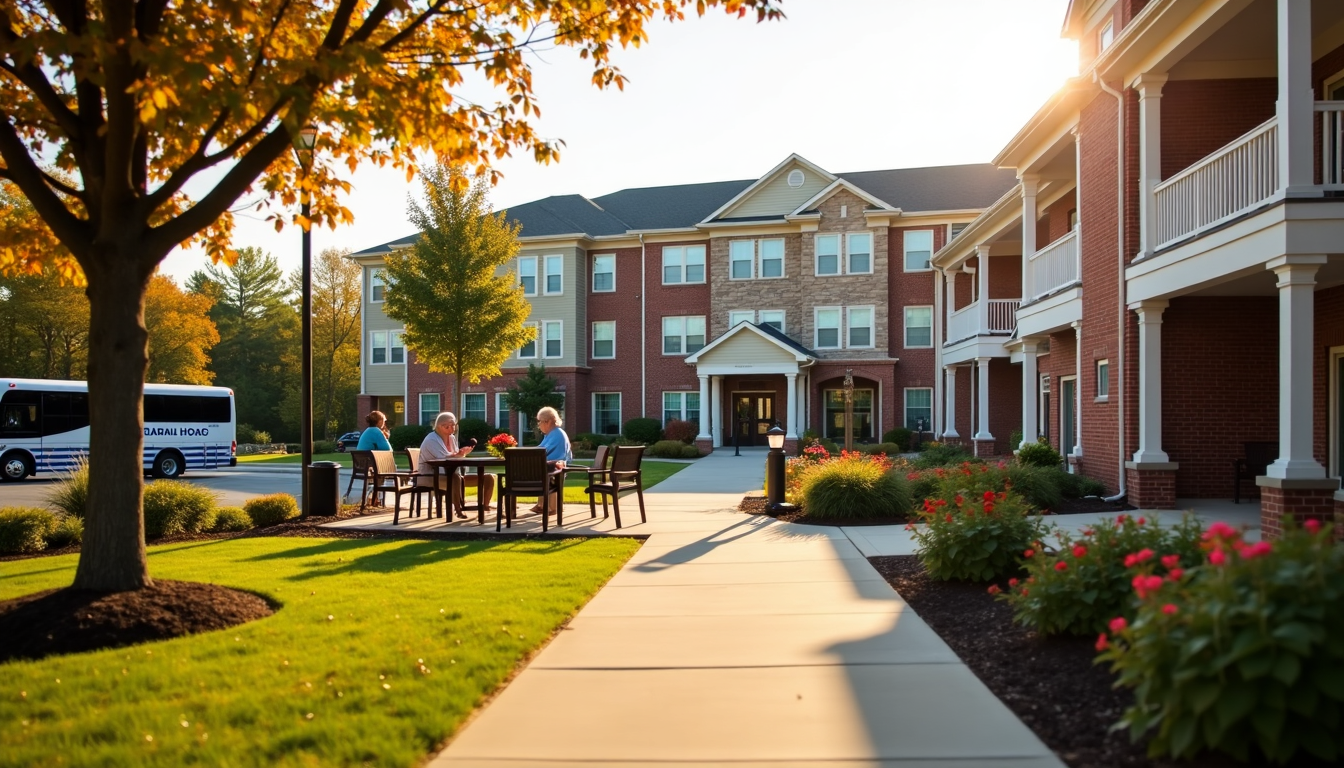As seniors age, navigating the complex landscape of government assistance programs becomes increasingly important. These programs offer crucial support to older adults, helping them maintain their quality of life and independence. Government senior assistance programs encompass a wide range of services, from healthcare and financial aid to nutrition support and community services, designed to address the unique needs of the aging population.
This article explores essential government programs that provide vital assistance to seniors. It covers healthcare support options like Medicare Savings Programs, financial aid such as Social Security Disability Insurance and Supplemental Security Income, and food assistance programs including the Supplemental Nutrition Assistance Program. Additionally, it examines community and social services that enhance seniors’ well-being, as well as various benefits and discounts available to older adults. By understanding these resources, seniors can better access the support they need to thrive in their golden years.
Healthcare Support for Seniors
Government senior assistance programs offer crucial healthcare support to older adults. These programs aim to provide comprehensive medical care and assistance with prescription drug costs.
Medicare Coverage Options
Medicare health plans provide Part A (Hospital Insurance) and Part B (Medical Insurance) benefits to people with Medicare. These plans are generally offered by private companies that contract with Medicare. They include Medicare Advantage Plans (Part C), Medicare Cost Plans, Demonstrations/Pilots, and Program of All-inclusive Care for the Elderly (PACE).
Medicare Advantage Plans, sometimes called “Part C” or “MA plans,” are offered by Medicare-approved private companies that must follow rules set by Medicare. Most Medicare Advantage Plans include drug coverage (Part D). Before joining a Medicare Advantage plan, seniors should talk to their employer, union, or other benefits administrator about their rules, as joining might cause them to lose their current coverage.
Prescription Drug Assistance
For seniors who need help paying for prescriptions, even after enrolling in Medicare drug coverage (Part D), there are several options available. Some Medicare drug plans offer additional coverage during the coverage gap, although these plans may charge a higher monthly premium. Pharmaceutical Assistance Programs, offered by some pharmaceutical companies, can help pay for medications for people enrolled in Medicare drug coverage.
The Extra Help program, provided by Medicare and Social Security, is designed for people with limited income and resources. In 2024, those who qualify for Extra Help could pay no more than $4.50 for each generic covered drug and $11.20 for each brand-name covered drug.
Veterans Health Administration (VHA)
The VA healthcare system, the largest single provider of healthcare in the United States, serves over 9 million veterans. It offers a variety of long-term care services, including congregant homes, home care, and care management. Eligibility requires enrollment in VA health care.
The VA provides geriatrics care for elderly veterans with complex needs and extended care (also known as long-term care) for veterans of all ages who need daily support and assistance. These services are available at home, at VA medical centers, or in the community.
Financial Assistance Programs
Social Security Retirement Benefits are a cornerstone of financial support for seniors. These benefits are based on an individual’s lifetime earnings and the age at which they choose to start receiving them. The full retirement age varies depending on the year of birth, ranging from 66 to 67 for those born in 1943 or later. While benefits can be claimed as early as age 62, doing so results in a reduction of up to 30% compared to waiting until full retirement age. Conversely, delaying benefits until age 70 can increase the monthly amount by 8% per year.
Supplemental Security Income (SSI) provides additional financial assistance to seniors with limited income and resources. As of 2024, the basic monthly SSI payment is $943 for individuals and $1,415 for couples. Eligibility criteria include being 65 or older, blind, or disabled, with income and resources below specified thresholds. The program considers various factors, including living arrangements and other sources of income, when determining benefit amounts.
Senior Tax Benefits offer various opportunities for older adults to reduce their tax burden. The Credit for the Elderly or Disabled allows eligible seniors to deduct money from their total tax owed. Additionally, seniors can take advantage of a higher standard deduction if they are 65 or older. Some states provide specific tax benefits for seniors, such as exempting Social Security benefits from taxation or offering property tax relief. It’s important for seniors to consult with tax professionals to maximize their benefits and ensure compliance with current tax laws.
Food and Nutrition Support
The government offers various programs to support seniors’ nutritional needs. These initiatives aim to ensure older adults have access to healthy, affordable meals and maintain their independence.
SNAP Benefits for Seniors
The Supplemental Nutrition Assistance Program (SNAP) provides essential food assistance to eligible seniors. For adults aged 60 and older, SNAP has special provisions:
- Higher resource limits: Households with elderly members can have up to $4,250 in countable resources.
- Simplified application process: Some states offer a streamlined application for seniors.
- Medical expense deductions: Seniors can deduct medical expenses exceeding $35 per month, potentially increasing their benefits.
To apply, seniors can use online portals, phone services, or mail-in applications. Eligibility is based on income, resources, and household size.
Meals on Wheels
Meals on Wheels delivers nutritious meals to seniors who have difficulty shopping for or preparing food. This program:
- Serves 251 million meals annually to 2.2 million seniors
- Provides social interaction through regular meal deliveries
- Conducts safety checks during visits
- Offers additional services like pet food delivery and home repairs in some areas
Meals on Wheels improves health, enables independence, and fosters dignity among seniors. The program typically serves adults 60 and older, with fees based on a sliding scale.
Congregate Meal Programs
Congregate meal programs offer nutritious meals in group settings, addressing both nutritional needs and social isolation. These programs:
- Provide meals at senior centers, churches, and other community locations
- Offer balanced meals that meet USDA dietary guidelines
- May include options for special diets (e.g., gluten-free, diabetic-friendly)
- Encourage social interaction among participants
Funded by the Senior Nutrition Program, these meals are available to adults 60 and older. While there are no set fees, small donations are encouraged to support program costs.
Community and Social Services
Older Americans Act Programs
The Older Americans Act (OAA) of 1965 established a comprehensive framework for community-based services for older adults. This legislation created the Administration on Aging (AoA) and authorized grants to states for community planning and social services. The OAA supports a wide array of programs, including information and referral, congregate and home-delivered meals, health and wellness programs, in-home care, and transportation. These services are delivered through a national network comprising 56 state agencies on aging, 618 area agencies on aging, and nearly 20,000 service providers.
Senior Community Service Employment Program (SCSEP)
SCSEP, created in 1965, is the nation’s oldest program helping low-income, unemployed individuals aged 55 and older find work. It matches eligible older adults with part-time training assignments at nonprofit organizations, allowing participants to build skills and earn a modest income. SCSEP is funded by the U.S. Department of Labor and serves nearly every county in the nation. To qualify, individuals must be 55 or older, unemployed, and have a family income of no more than 125% of the federal poverty level.
Legal Services for the Elderly
Legal assistance programs provide crucial support to older adults facing various legal issues. These services address matters such as housing, consumer fraud, elder abuse, Social Security, Medicare, age discrimination, and nursing home concerns. In San Francisco, for example, Legal Assistance to the Elderly (LAE) offers free legal services to seniors and adults with disabilities, focusing on protecting their rights to housing, health, financial stability, and safety.
Conclusion
To wrap up, government senior assistance programs play a crucial role in supporting older adults across various aspects of their lives. These programs have a significant impact on healthcare, financial stability, nutrition, and community engagement for seniors. By providing essential services and resources, they enable older individuals to maintain their independence and quality of life as they age.
Understanding and accessing these programs is key for seniors to make the most of available support. From Medicare and Social Security to food assistance and community services, these initiatives form a safety net for older adults. As the population continues to age, these programs will become even more important to address the unique needs of seniors and ensure their well-being in their golden years.
FAQs
What types of financial assistance does Texas provide to its residents?
In Texas, the Health and Human Services (HHS) offers monetary assistance through the Texas Temporary Assistance for Needy Families (TANF) program. This initiative provides cash support to help cover expenses like bills and food, aiming to support families in maintaining their basic living standards.
Who is eligible for the grocery stimulus program?
The Senior Farmers’ Market Nutrition Program (SFMNP) distributes coupons to seniors aged 60 and above who have an income at or below 185% of the federal poverty level. These coupons can be used to purchase eligible foods. In the fiscal year 2022, the program was operational in 57 states and territories, assisting over 757,751 individuals, according to USDA data.
What benefits are available for senior citizens in Texas for adult day care services?
Senior citizens in Texas can access up to 10 hours per day of adult day care services from Monday to Friday through the Day Activity and Health Services (DAHS) program. These services cater to mental, physical, medical, and social needs. Eligibility and applications for DAHS can be processed online at yourtexasbenefits.com or by contacting 2-1-1. For more information, seniors can also visit or call their local Health and Human Services office.
Is the USD 900.00 grocery stimulus for seniors a real program?
No, the USD 900.00 grocery stimulus for seniors is not an actual program but rather a misconception stemming from a petition by the Senior Citizens League in 2022. The petition proposed a one-time USD 1400.00 stimulus payment to help seniors manage the impact of inflation, but it did not result in the creation of a USD 900.00 grocery stimulus.












